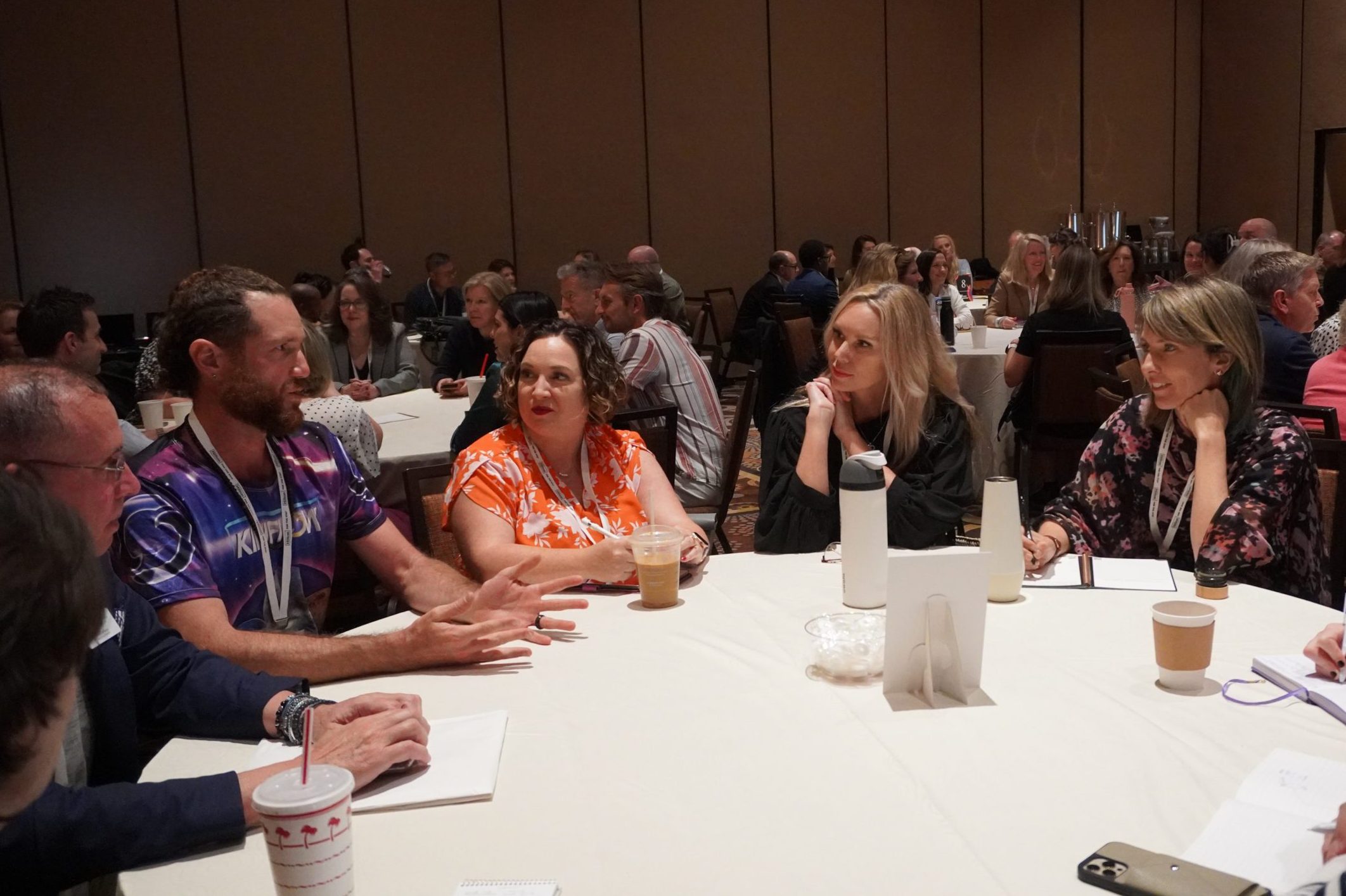Skift Meetings contributed to IMEX America’s Smart Monday with an Innovation Lab focused on connection. The afternoon was all about taking chances both experimentally as well as experientially.
There weren’t any talking heads standing behind podiums or, as one attendee said, sages from stages at the Innovation Lab. Instead, with the premise of New Yorker business columnist James Surowiecki’s book, “The Wisdom of Crowds,” in mind, “A large group of people is smarter than an elite few, no matter how brilliant — better at solving problems, fostering innovation, coming to wise decisions, even predicting the future,” This event focused on the more than 110 attendees getting to know each other on a deeper level and learning from each other.
“One of the key takeaways for me was we are all in this together. No one in our industry is facing challenges that others aren’t facing,” said Andrea Hutchinson, industry relations director, Questex Travel & Hospitality Group, and an Innovation Lab participant.
The afternoon kicked off with three questions Skift Meetings Editor-in-Chief Miguel Neves curated from Adrian Segar, founder of Conferences That Work: “How did I get here? What do I want to have happen? What experience/expertise do I have that others might find helpful?” The group jumped right in with lively conversation.
To ensure the conversations flowed, “event scientists” were on hand. They included Megan Henshall, CMP, DEC, global events strategy at Google; Will Curran, founder of Endless Events; Naomi Clare Crellin, founder and CEO of Storycraft Lab; Brandt Krueger, an event technology consultant; Kate Patay, director of engagement, Terramar US; Ruud Janssen, founder of Event Design Collective; Tracy Stuckrath, founder of Thrive! Meetings and Events; Anthony Vade, event experience strategy director of Encore; Katy Winmill, operations manager of Imprint Events Group; Rolando Espinoza, creative director of Champagne Creative Group; Chris Meyer, CEO of ChrisMeyerGlobal; Rachel Polin of Rachel Polin Consultancy; Steve Van Der Molen; vice president, meeting operations, Atlantic City region, Caesars Entertainment Corporation; Bree Nids, VP of sales, Discover Lehigh Valley; and Chris Bent, founder of Piccles.
Career shifts, lack of time, and unrealistic expectations were key talking points.
Chris Bent, founder of Piccles, summed up one round of conversation from his table as follows, “Our biggest thing was no one has any time at all. We all want to be more creative but are so stressed and just don’t have the space to experiment and use the creativity we want to use,” he said.
Naomi Clare Crellin of Storycraft Lab summed up her group’s chat: “They are experiencing change, lots of it, but are looking at it as opportunity.”
Rolando Espinoza stressed the hunger of the attendees at his table. “Everyone is hungry. They want to learn something new and innovative.”
Later in the afternoon, ten subgroups were created based on attendee interest in the following topics: creativity and new ideas, event design, return on investment, engaging attendees, hybrid events, sponsorships, attracting attendees, sustainability and CSR, registration and badging, and community building.
Smart Monday Eve
IMEX and education go hand in hand, and learning started Sunday night with an Event Design Collective session at Caesars Linq featuring co-founders Roel Frissen and Ruud Janssen. They shared with the group how they are changing behavior by helping create successful events. Reina Herschdorfer, director of marketing for national meetings and events for Caesars Entertainment, shared with the group how the Event Design Collective helped Caesars create a successful roadshow leading up to the opening of Caesars Forum and in the design of the venue.
Both events were interactive and collaborative, which led to engaged attendees. So much so that, unlike a typical presentation during a conference session where attendees can lose attention, that did not happen. Instead, attendees were on task, and no one was sneaking a text under a table.
